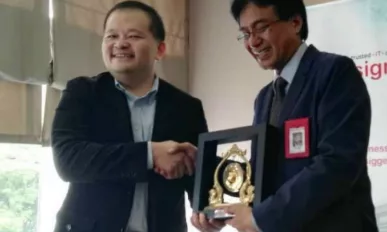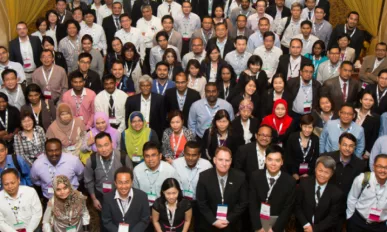The AFCSR : CSR, Thought Leadership and Practice
On 20-21 September, 2016, the AFCSR will convene for the first time in Nay Pyi Taw, Myanmar to focus on corporate social innovation (CSI)
Galasys Signs Strategic Collaborations with Indonesia’s Telkomsigma
Galasys Plc recently signed a strategic collaboration with PT Sigma Caraka, also known as Telkomsigma, to utilise Galasys Intelligent Tourism platform to help boost the Indonesian in-bound tourism industry.
Award-Winning Silicon Valley Entrepreneur to Address 15th AFCSR in Myanmar
Silicon Valley-based Diosdado “Dado” Banatao has accepted the invitation to address this year’s 15th Asian Forum on Corporate Social Responsibility (AFCSR) in Myanmar.
Asian Forum on Corporate Social Responsibility to Convene in Myanmar for the First Time
The Asian Forum on Corporate Social Responsibility (AFCSR), Asia’s most established regional dialogue on CSR thinking and practice, will convene in Nay Pyi Taw, Myanmar for the first time on 20-21 September this year.
China’s Multidimensional Outlook
By focusing on financial reforms aimed at moving more of the economy toward a market-based allocation of capital, China hopes to improve investor confidence on its long path to a sustainable future.
Asia-Pacific Travelers Taking More Trips than Anyone Else in the World
Travelers from Asia-Pacific are filling up their passport pages at a faster rate than their global counterparts and are now leading the world in leisure travel
Setting the Pace for Global Innovation
With half of its economies ranked in the top 40, Southeast Asia and Oceania maintain their innovation dynamism this year, according to The Global Innovation Index (GII), 2015.
Emerging Markets Drive New Normal in Global Economy
The financial world order has yet to stabilise into a new normal following the last global crisis, but Pascal Blanqué believes that a new ‘normal’, with a greater level of complexity will be the order of the day.
Building Tomorrow’s Project Management Leaders
The Project Management Institute Malaysia Chapter (PMIMY), will host the 2nd Project Management Institute Malaysia Chapter International Symposium in Kuala Lumpur.
Corporate China Speaks ‘Business’
As China’s entrepreneurial streak races ahead, corporate executives from Shanghai to Shenzhen are recognising the importance of agility in meeting the demands of a perpetually changing global marketplace.
Chinese Property: Seeing Through the Fog
The first whispers of worry about a Chinese property bubble surfaced in late 2009. Since then, the local real estate market has quickened and slowed in line with government measures to stoke or cool the market, but has never crashed.
China to Top US Business Travel Spending by 2016
China’s globe-trotting businessmen are on track to top travel spending by 2016, overtaking their U.S. counterparts, according to a new survey by the Global Business Travel Association (GBTA).












































